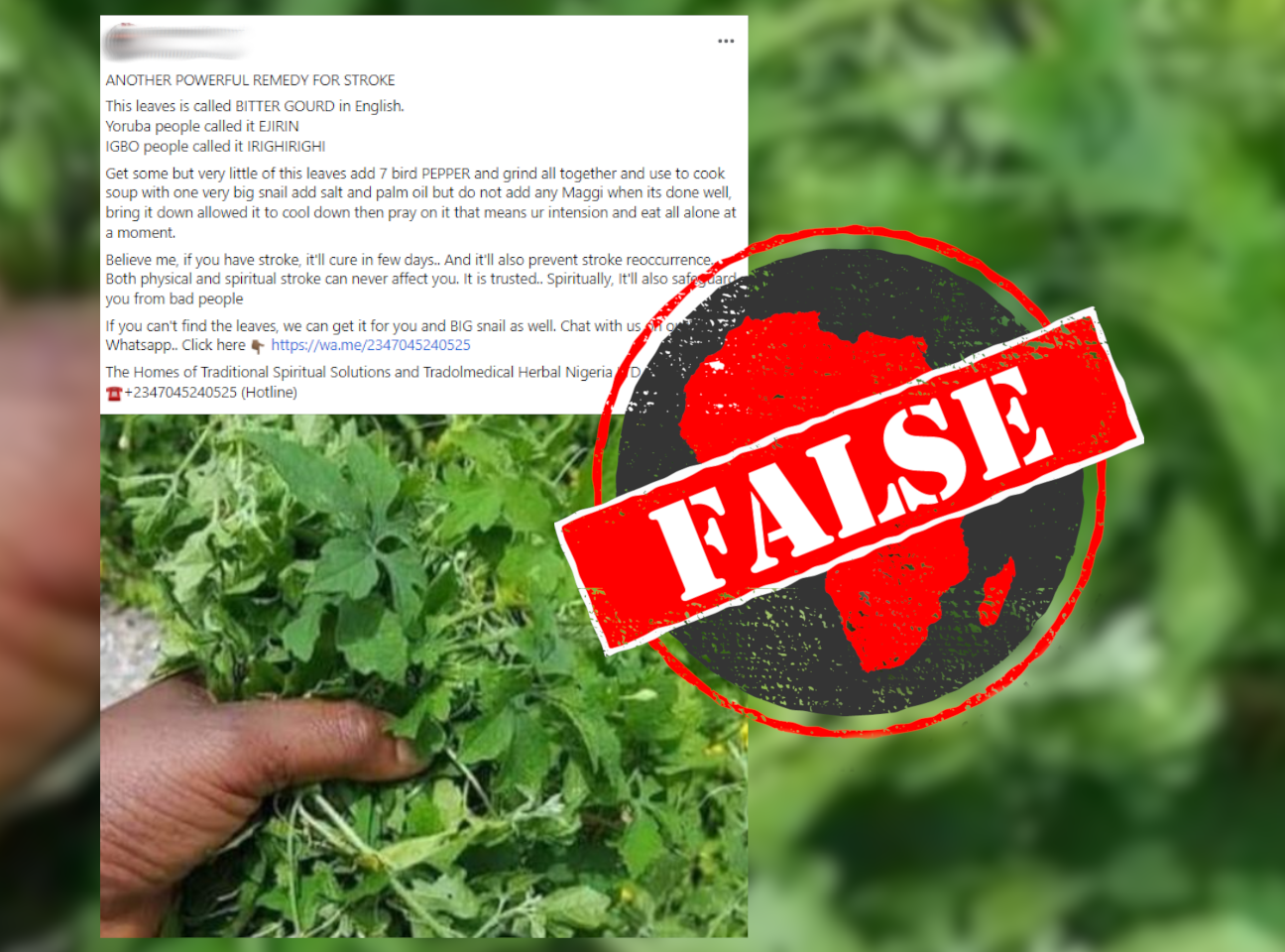“ANOTHER POWERFUL REMEDY FOR STROKE,” reads the headline of a post published on Facebook in Nigeria in January 2022.
The post lists the ingredients to use: bitter gourd leaves, pepper, “one very big snail”, salt and palm oil.
“Believe me, if you have a stroke, it'll cure in a few days. And it'll also prevent stroke reoccurrence. Both physical and spiritual stroke can never affect you. It is trusted. Spiritually, It'll also safeguard you from bad people,” reads the post.
Bitter gourd or Momordica charantia is an annual herbaceous vine native to tropical and subtropical Africa and Asia.
But is this potent-sounding mixture really a cure for stroke?

Not scientifically proven
A stroke happens when a burst or blocked blood vessel interrupts the flow of blood to the brain. The brain’s supply of oxygen and nutrients is cut off, which damages the brain tissue.
According to the World Health Organization “the most common symptom of a stroke is sudden weakness or numbness of the face, arm or leg, most often on one side of the body”.
Prof Abayomi Ogun, consultant neurologist at the Lagos State College of Medicine, told Africa Check the mixture was not a remedy for stroke.
“Bitter gourd leaves do not cure stroke. The claim should be ignored; it has no basis,” Ogun said.
Dr Tuyi Mebawondu-Olowu, a public health physician, told us “the remedy has not been scientifically proven”. The doctor warned the public not to rely on social media platforms for claims about medication “because a lot of misinformation and disinformation goes on there”.
The US-based American Stroke Association says immediate medical treatment may minimise the long-term effects of a stroke and even prevent death.
Africa Check has debunked other similar posts claiming certain herbal mixtures and concoctions could cure a stroke. They were, like this one, not backed by rigorous scientific evidence.
Republish our content for free
For publishers: what to do if your post is rated false
A fact-checker has rated your Facebook or Instagram post as “false”, “altered”, “partly false” or “missing context”. This could have serious consequences. What do you do?
Click on our guide for the steps you should follow.
Publishers guideAfrica Check teams up with Facebook
Africa Check is a partner in Meta's third-party fact-checking programme to help stop the spread of false information on social media.
The content we rate as “false” will be downgraded on Facebook and Instagram. This means fewer people will see it.
You can also help identify false information on Facebook. This guide explains how.


Add new comment